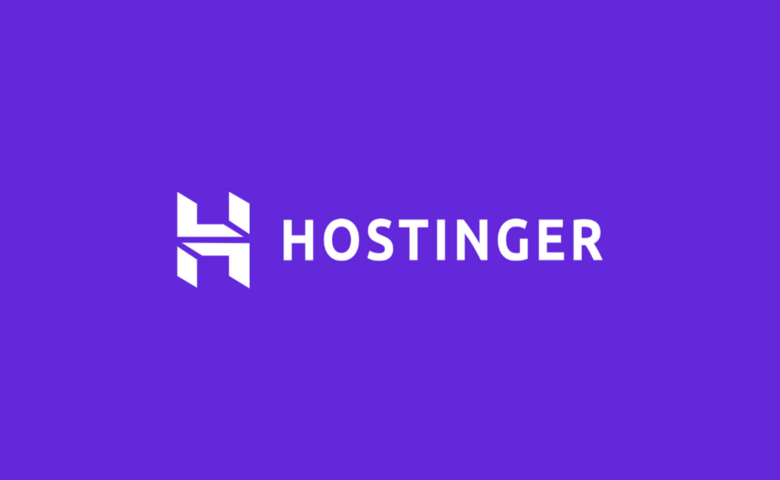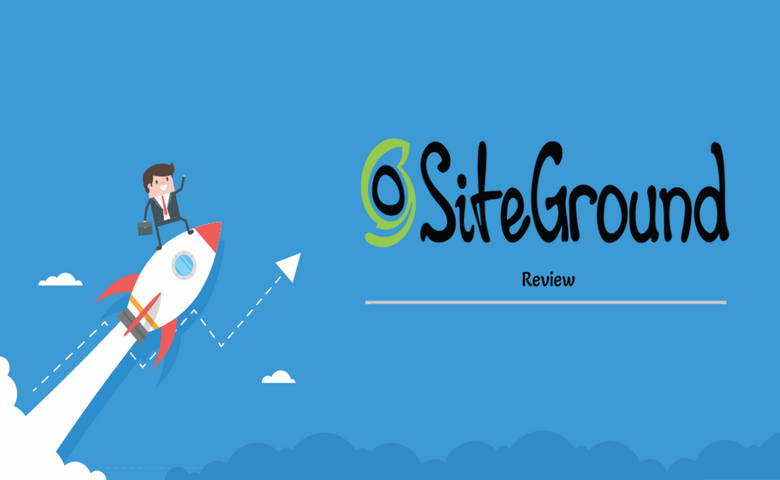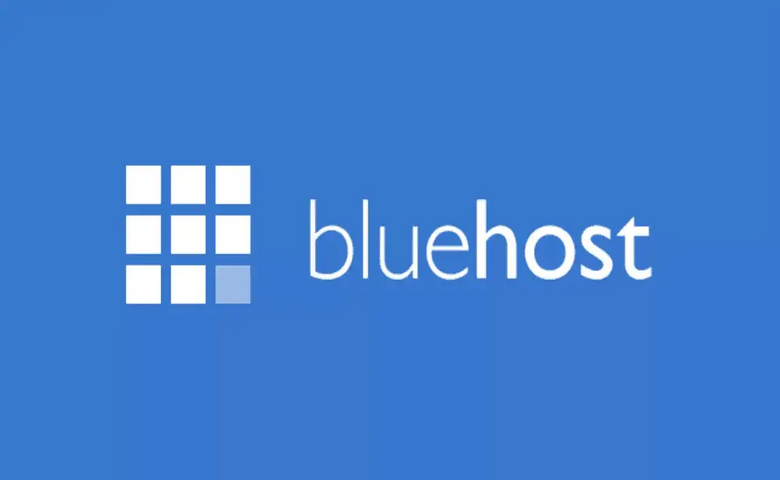Choosing the right web hosting provider for you will depend on your specific needs and budget. Consider factors such as the type of website you are building, the amount of traffic you expect, and the features you need.
By exploring reviews and rankings, users can make informed decisions to ensure that their websites are hosted by reputable providers within the top 5 web hosting companies in the industry, guaranteeing a seamless online experience for both site owners and visitors alike. Here are the top 5 web hosting companies, based on factors such as features, pricing, performance, and customer support:
Table of Contents
1. Hostinger

Hostinger is a globally recognized web hosting company established in 2004 and headquartered in Kaunas, Lithuania. They offer a variety of hosting solutions, including shared hosting, cloud hosting, VPS hosting, and dedicated hosting, as well as domain registration and website builder tools. Hostinger is a great web hosting provider for businesses and individuals on a budget. They offer affordable prices, reliable uptime, and excellent customer support.
Pros:
- Affordable prices: Hostinger offers some of the most affordable web hosting plans on the market, making them a great option for businesses and individuals on a budget.
- Reliable uptime: Hostinger offers a 99.9% uptime guarantee, so you can be sure that your website will be online and accessible to your visitors.
- Excellent customer support: Hostinger offers 24/7 customer support via live chat, phone, and email. Their support team is knowledgeable and helpful, and they are always willing to go the extra mile to help you with your hosting needs.
- User-friendly interface: Hostinger’s control panel is easy to use and navigate, even for beginners.
- Wide range of features: Hostinger offers a wide range of features with their hosting plans, including free SSL certificates, website backups, and email accounts.
Cons:
- Limited storage and bandwidth: Hostinger’s basic shared hosting plans offer limited storage and bandwidth, which may not be enough for some businesses.
- Upselling: Hostinger can be aggressive with upselling additional services during the checkout process.
2. IONOS

IONOS is a reliable and affordable web hosting option for businesses of various sizes. They offer a wide range of services, scalability, and good customer support. However, be mindful of potential upselling and compare pricing structure carefully before choosing a plan. IONOS, formerly known as 1&1 IONOS, is a major web hosting provider based in Europe. Here’s some information to help you understand them better:
Overview:
- Founded in 1988, it boasts over 8 million customer contracts and manages 12 million domains.
- Offers a wide range of hosting solutions including shared hosting, cloud hosting, VPS hosting, dedicated servers, and managed WordPress hosting.
- Operates its own data centers in the US and Europe, ensuring data security and privacy.
- Provides additional services like email marketing, website builder tools, SSL certificates, and domain registration.
Pros:
- Affordable pricing: Offers competitive prices for its various hosting plans, making it attractive for budget-conscious customers.
- Scalability: Provides solutions for both small businesses and large corporations, allowing you to upgrade your plan as your needs grow.
- Georedundant infrastructure: Ensures high uptime and data security with mirrored data centers in different locations.
- 24/7 customer support: Offers support via phone, live chat, and email, with dedicated personal consultants available for some plans.
- Variety of features: Includes free SSL certificates, website backups, and email accounts with most plans.
Cons:
- Upselling: Like many hosting providers, they may try to upsell additional services during checkout.
- Confusing pricing structure: Pricing can be complex depending on chosen features and discounts, requiring careful comparison.
- Some user reviews mention limited storage and bandwidth for basic plans.
3. SiteGround

SiteGround is an excellent choice for website owners who prioritize speed, security, and top-notch customer support, especially for WordPress users. While the pricing might be slightly higher for basic plans, the performance and feature set justify the cost for many users. SiteGround is a popular web hosting company well-regarded for its speed, security, and excellent customer support. Here’s a detailed breakdown of its features and potential drawbacks:
Pros:
- Speed: SiteGround excels in website loading speed, thanks to its Google Cloud infrastructure, custom PHP and MySQL optimizations, and advanced caching mechanisms.
- Security: They prioritize security with features like daily backups, free SSL certificates, advanced server-level protection, and automatic WordPress updates (for managed plans).
- Managed WordPress Hosting: For WordPress users, SiteGround offers specialized plans with pre-installed plugins, automatic updates, security features, and expert WordPress support.
- Customer Support: Their award-winning 24/7 customer support is available via phone, live chat, and email, with knowledgeable and helpful representatives.
- User-Friendly Interface: The control panel is easy to navigate, even for beginners, with a clean interface and helpful tutorials.
- Good Uptime: They offer a 99.9% uptime guarantee, ensuring your website is accessible to visitors.
Cons:
- Pricing: Compared to some competitors, SiteGround’s basic plans can be slightly more expensive, although introductory discounts and seasonal promotions are available.
- Limited Storage and Bandwidth: Basic shared hosting plans offer lower storage and bandwidth compared to some competitors, which might not be enough for resource-intensive websites.
- Upselling: They might try to upsell additional services during checkout, but it’s not overly aggressive.
4. Bluehost

Bluehost is a solid choice for beginners and small businesses looking for an affordable and user-friendly web hosting solution. The WordPress integration and free domain name are valuable perks. However, be mindful of renewal prices, limited resources for basic plans, and potential upselling. Weigh your needs and budget carefully before choosing Bluehost. Bluehost is a well-established web hosting provider with a strong reputation for being beginner-friendly, affordable, and offering a good balance of features. Here’s a detailed breakdown of its pros and cons to help you decide if it’s the right choice for you:
Pros:
- Affordable Pricing: Bluehost offers some of the most competitive prices in the market, especially with introductory discounts. Shared hosting plans start at under $3 per month, making it a suitable option for budget-conscious individuals and businesses.
- Beginner-Friendly: Bluehost is known for its user-friendly interface and extensive knowledge base, making it easy for beginners to set up and manage their websites. They also offer helpful tutorials and support resources.
- WordPress Integration: Bluehost is officially recommended by WordPress.org, offering pre-installed WordPress with one-click installations and automatic updates. They also provide WordPress-specific features and support.
- Reliable Uptime: Bluehost boasts a 99.9% uptime guarantee, ensuring your website remains accessible to visitors.
- Free Domain Name: Most Bluehost hosting plans come with a free domain name for the first year, saving you additional costs.
- 24/7 Customer Support: They offer phone, chat, and email support available 24/7, with knowledgeable representatives to assist you with any issues.
Cons:
- Renewal Prices: While introductory prices are attractive, renewal rates can be significantly higher after the initial term.
- Limited Storage and Bandwidth: Basic shared hosting plans offer limited storage and bandwidth, which might not be enough for high-traffic websites or those with large media files.
- Upselling: Bluehost might try to upsell additional services during checkout, which can inflate the overall cost.
- Not the Best for Advanced Users: While powerful enough for most websites, Bluehost may not offer the advanced features and customization options needed by larger or more tech-savvy users.
5. HostGator

HostGator presents a compelling option for individuals and businesses starting or managing websites on a budget. Its range of features, user-friendliness, and free domain name are attractive. However, consider the potential renewal price hikes, resource limitations, and upselling tactics before making a decision. HostGator is a popular web hosting provider known for its affordable prices, wide range of hosting options, and user-friendly platform. Here’s a breakdown of its pros and cons to help you decide if it’s the right fit for you:
Pros:
- Affordable Pricing: HostGator offers competitive prices for its shared hosting plans, especially with introductory discounts. They cater to various budgets, with options starting under $3 per month.
- Variety of Hosting Options: HostGator provides a diverse range of hosting solutions, including shared hosting, VPS hosting, dedicated hosting, cloud hosting, and reseller hosting. You can choose the option that best suits your website’s needs and growth.
- Beginner-Friendly Platform: Similar to Bluehost, HostGator prioritizes user-friendliness. Their cPanel control panel is intuitive and easy to navigate, even for those with limited technical experience.
- Free Domain Name: Most HostGator hosting plans come with a free domain name for the first year, saving you initial setup costs.
- 99.9% Uptime Guarantee: They ensure consistent website availability with a 99.9% uptime guarantee, minimizing downtime and potential revenue loss.
- 24/7 Customer Support: HostGator offers phone, chat, and email support 24/7. While some users report mixed experiences, the support availability is a valuable feature.
Cons:
- Renewal Price Increases: Introductory prices often lead to significant price hikes upon renewal, so be aware of the long-term cost commitment.
- Upselling: Similar to other providers, HostGator might try to upsell additional services during checkout, potentially inflating your overall cost.
- Limited Resources for Basic Plans: Basic shared hosting plans offer limited storage and bandwidth, which might be insufficient for high-traffic websites or those with large media files.
- Mixed Customer Reviews: While some users have positive experiences, others report occasional issues with customer support response times and plan limitations.
It’s crucial to keep in mind that the hosting industry evolves, and new companies may gain prominence or changes might occur in the offerings of existing providers. Before making a decision, consider your specific hosting requirements from top 5 web hosting companies and check the latest reviews to ensure that you choose a hosting provider that meets your needs.
Also Read: Top 5 Highest Paying Affiliate Programs
Image credit: Yandex.com















